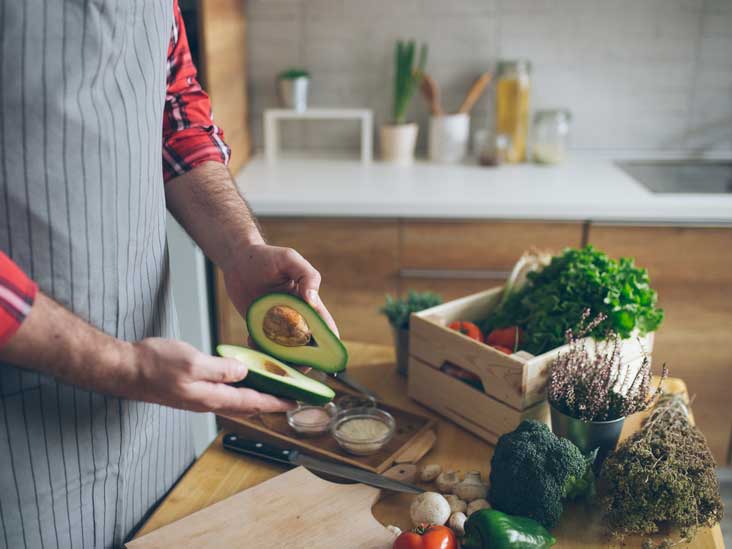A keto diet is a high fat, moderate proteins, and low carb diet. In the keto diet, fat accounts for 60-80% calories, proteins 15-20%, and carbs not more than 50 gm. In the keto diet, the body utilizes energy from stored fats present in the body as carb intake is almost negligible. The body converts body fat into energy, thereby helping in losing weight. When your body burns body fat for fuel, it produces ketones, substances made in your liver. This state is known as ketosis. In this state, your body no longer relies on carbs for energy, the body utilizes and burns all fat content.
Ketogenic diet benefits –
Weight loss - In the absence of carbs, the body burns fat for fuel. Fat is the form of energy your body consumes in the Ketogenic diet.
Prevent disease - This diet has been used to treat various diseases including epilepsy. Another important benefit is that it inhibits the growth of cancer cells as they cannot survive in a glucose-depleted environment.
Protect muscle - In a fat-rich surrounding, the body mostly goes after the fat before it goes to the muscle for fuel.
Foods you can have on a keto diet – Nuts, non-starchy fibrous vegetables, fish, eggs, coconut, cottage cheese.
Sources of non-starchy carbs include – Cauliflower, broccoli, mushrooms, and green beans.
Snacks opt for a keto diet (High fat, moderate proteins, and low carb) – Walnuts, peanuts, coconut yogurt, olives, cheese.
In drinks, you can have water and coffee/tea in milk with no sugar.
Avoid or restricts high carb foods – Rice, potatoes, high sugary fruits, bread, baked food products
If you're planning to give the keto diet a try for the first time, do consult a Nutritionist, or Dietitian first. They can guide you with a tailored meal plan that may work best for you.
Disclaimer: The content on this site is for informational purposes only, and should not be taken as professional medical advice. Always seek the guidance of your doctor or other health professionals for any questions you may have regarding your health or a medical condition.

 Besides helping in losing weight, the ketogenic diet is useful against cancer, epilepsy, and other diseases. Know some important facts on ketogenic diets.
Besides helping in losing weight, the ketogenic diet is useful against cancer, epilepsy, and other diseases. Know some important facts on ketogenic diets.










.jpeg)

.jpg)







.jpeg)



.jpg)


.jpg)




.jpg)


